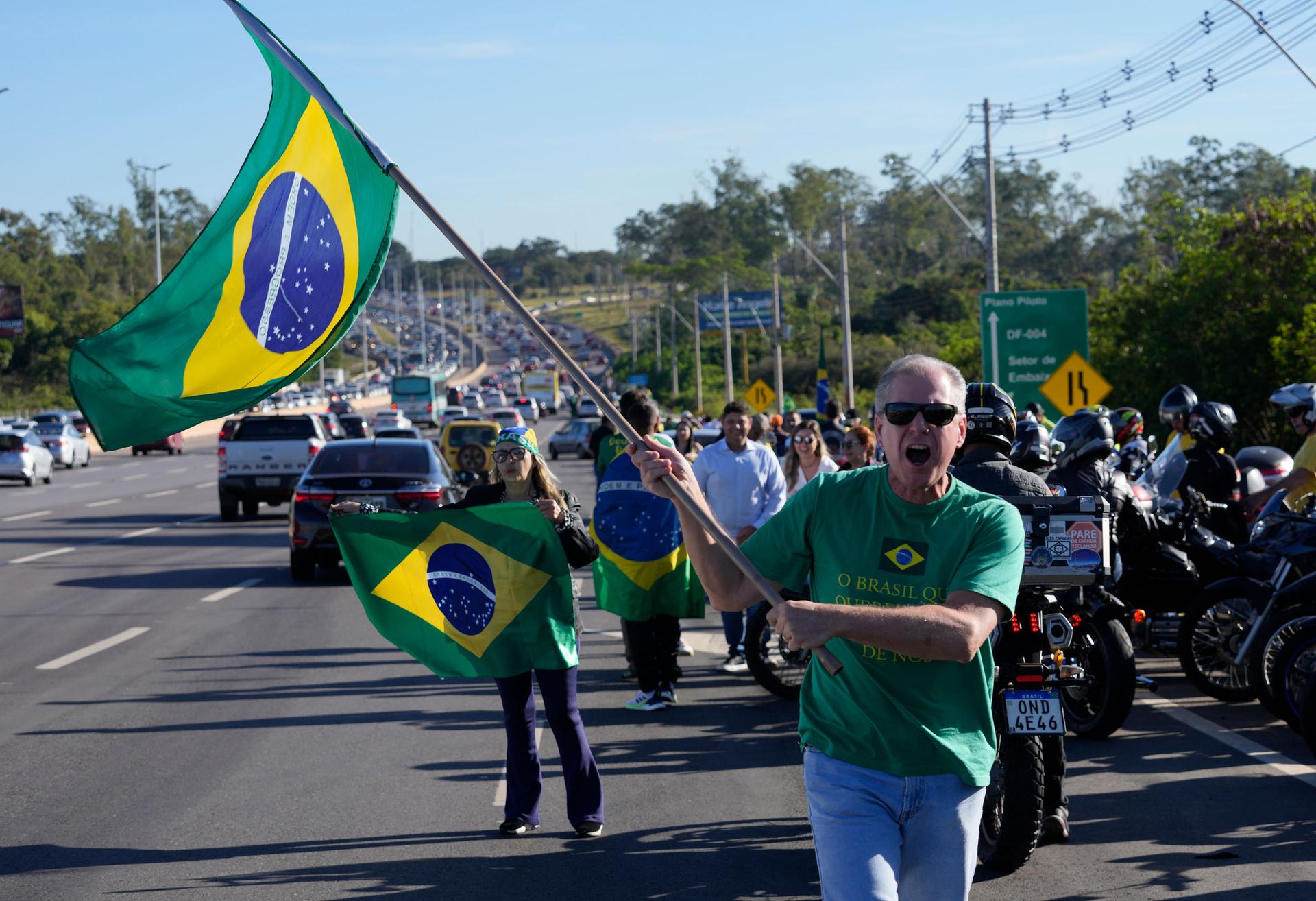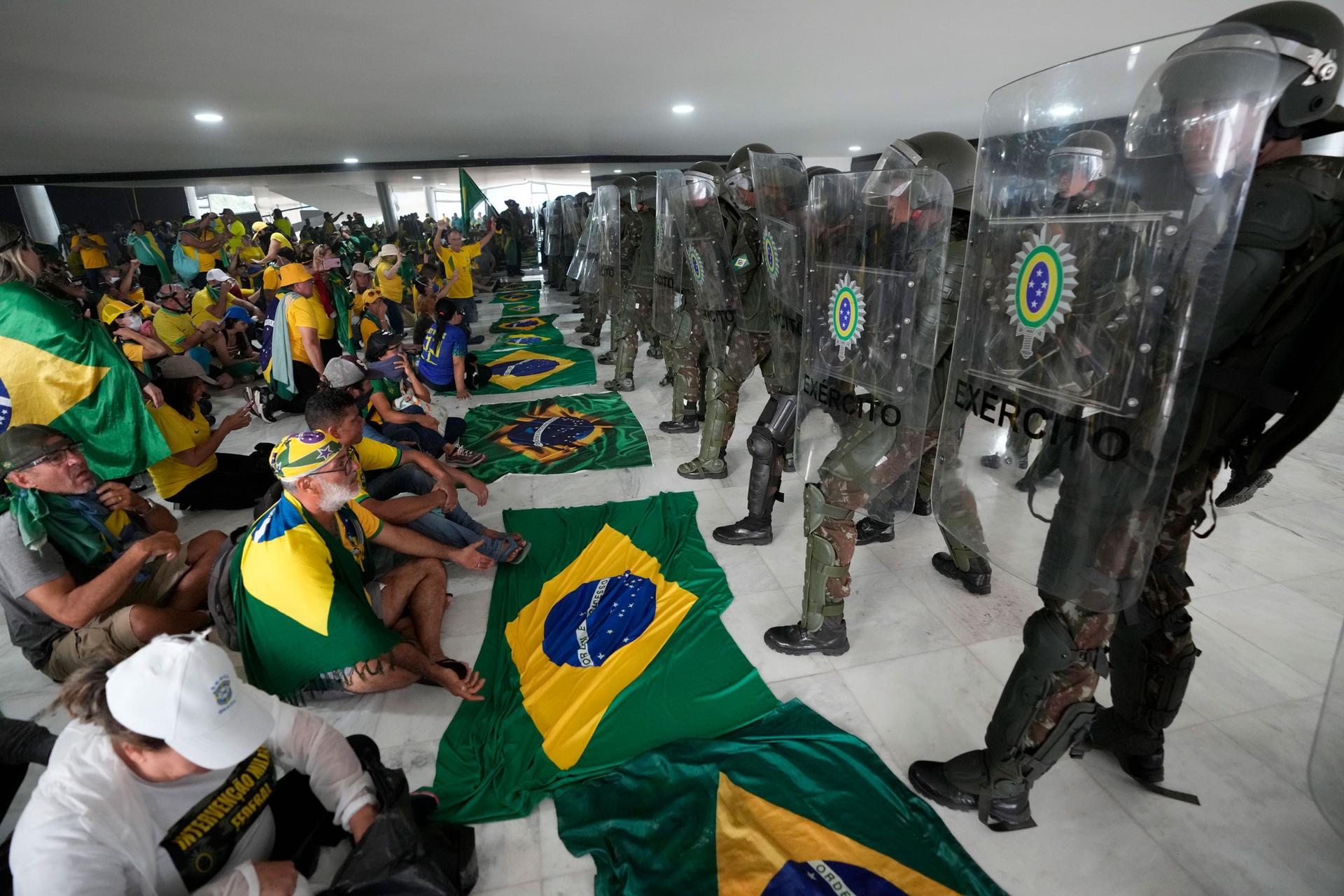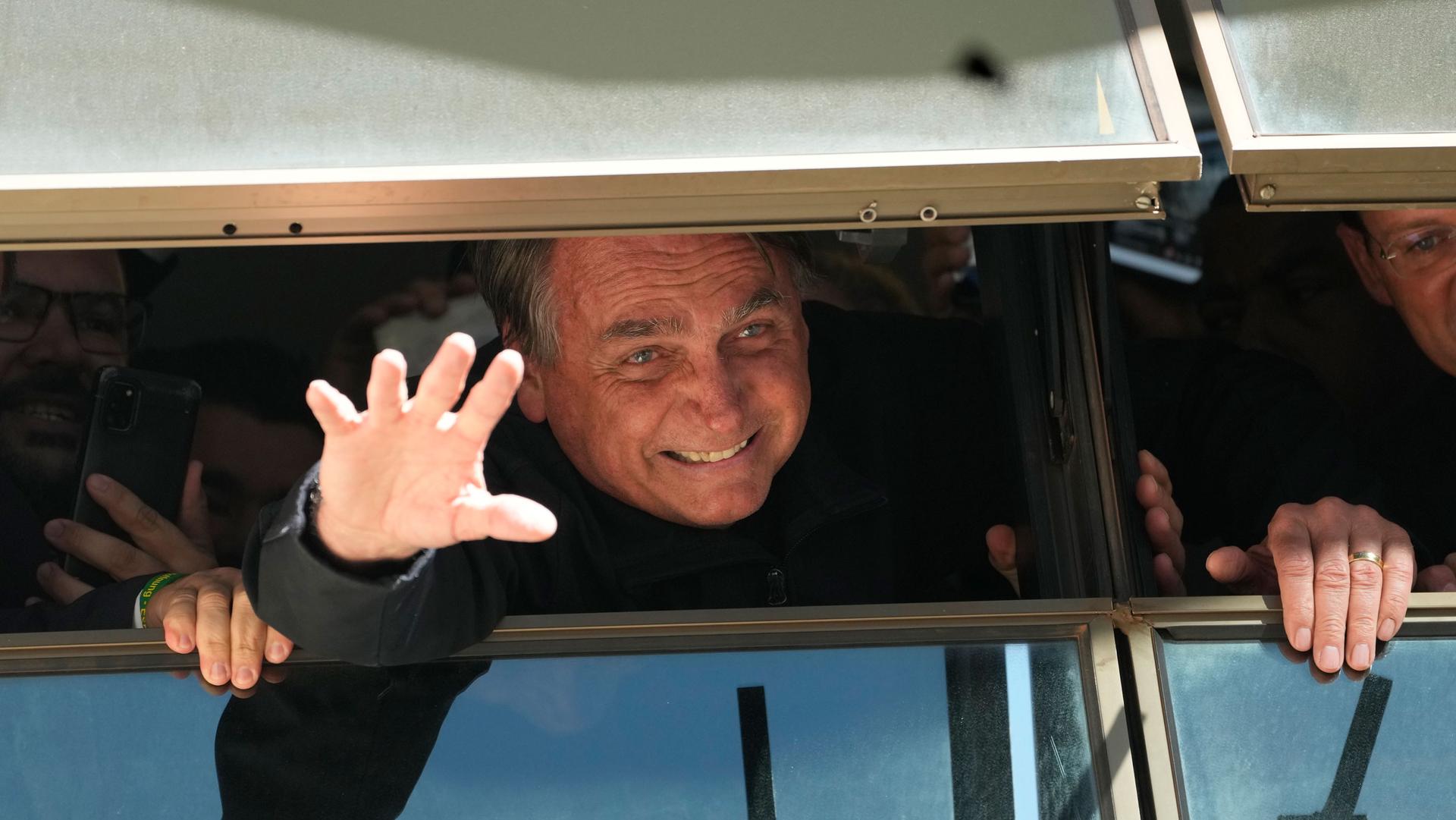Brazil’s former President Jair Bolsonaro returned home last month to applause as he entered the headquarters of his party.
“The captain has returned,” his allies and supporters chanted, as Liberal Party President Valdemar Costa Neto also welcomed him over the packed crowd.
“You were missed and you’ll always be missed, because the movement that you built in Brazil is here to stay,” he said.
Bolsonaro spent three months in self-imposed exile in Florida after losing his second-term election. Political observers are now anxious to see whether his movement will continue.
“There is no doubt that Bolsonaro, today, represents a movement with values and a virtuous economic legacy,” said Rogerio Marinho, the party’s congressional leader, in an interview with CNN Brazil.

In Congress, Bolsonaro’s party has the largest number of seats in the Lower House, though far under a majority.
“He obviously has the ability to mobilize perhaps the most radicalized and highly visible sector of the opposition, which is the extreme right that is in the National Congress,” said Marcelo Kunrath, a Brazilian political sociologist at the Federal University of Rio Grande do Sul.
“But will he effectively be able to assume a leadership role among his larger base? That’s another question.”
Kunrath said that Bolsonaro’s supporters among the far right, evangelicals and the military are not necessarily aligned as an opposition, and that Bolsonaro has lost strength since last year.
“He’s coming back from the United States in a much weaker position,” he said. “Because of the time he was silent while in Brazil, after the election, and then his time away.”
And massive pro-Bolsonaro street protests are not expected any time soon.
An invasion by Bolsonaro supporters in the capital on Jan. 8 ended with arrests. The invasion was widely condemned by society and Brazil’s political class — even Bolsonaro allies.
The Supreme Court has ordered Bolsonaro to testify this week over his alleged role in the Jan. 8 attack.

The former president also faces at least six lawsuits for alleged illegal acts while president — among them, abuse of power, for attacking Brazil’s voting system.
“You have his meetings with diplomats to disparage the Brazilian electoral system. And try to convince on the international stage that the Brazilian elections are corrupt,” said Larissa Peixoto, a Brazilian political scientist at Cardiff University’s Wales Governance Centre.
A conviction could block him from running in elections for up to eight years.
Peixoto also said that, while Bolsonaro has led the far right in Brazil in recent years, it doesn’t mean he’ll continue to do so.
“The movement that is attached to Bolsonaro isn’t necessarily a Bolsonaro movement. So, they will call themselves ‘Bolsonaristas,’” she said. But, the right in Brazil has had other figureheads, has had other heroes, and they tend to just be swapped over for someone else.”
And others are being groomed.
Last month, former first lady Michelle Bolsonaro was appointed to head the women’s branch of the Liberal Party, her first political position. She’s a devout evangelical who campaigned hard for her husband last year.
In Brazil, politics can take surprising turns.
But one thing is clear: Bolsonaro is back, and his followers are excited.
